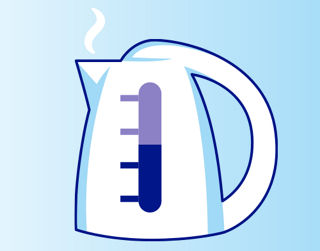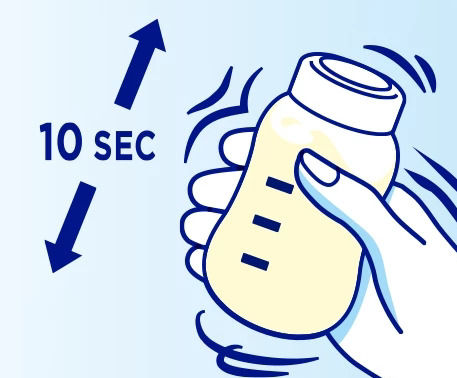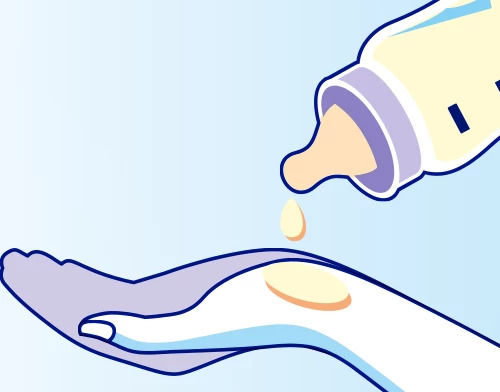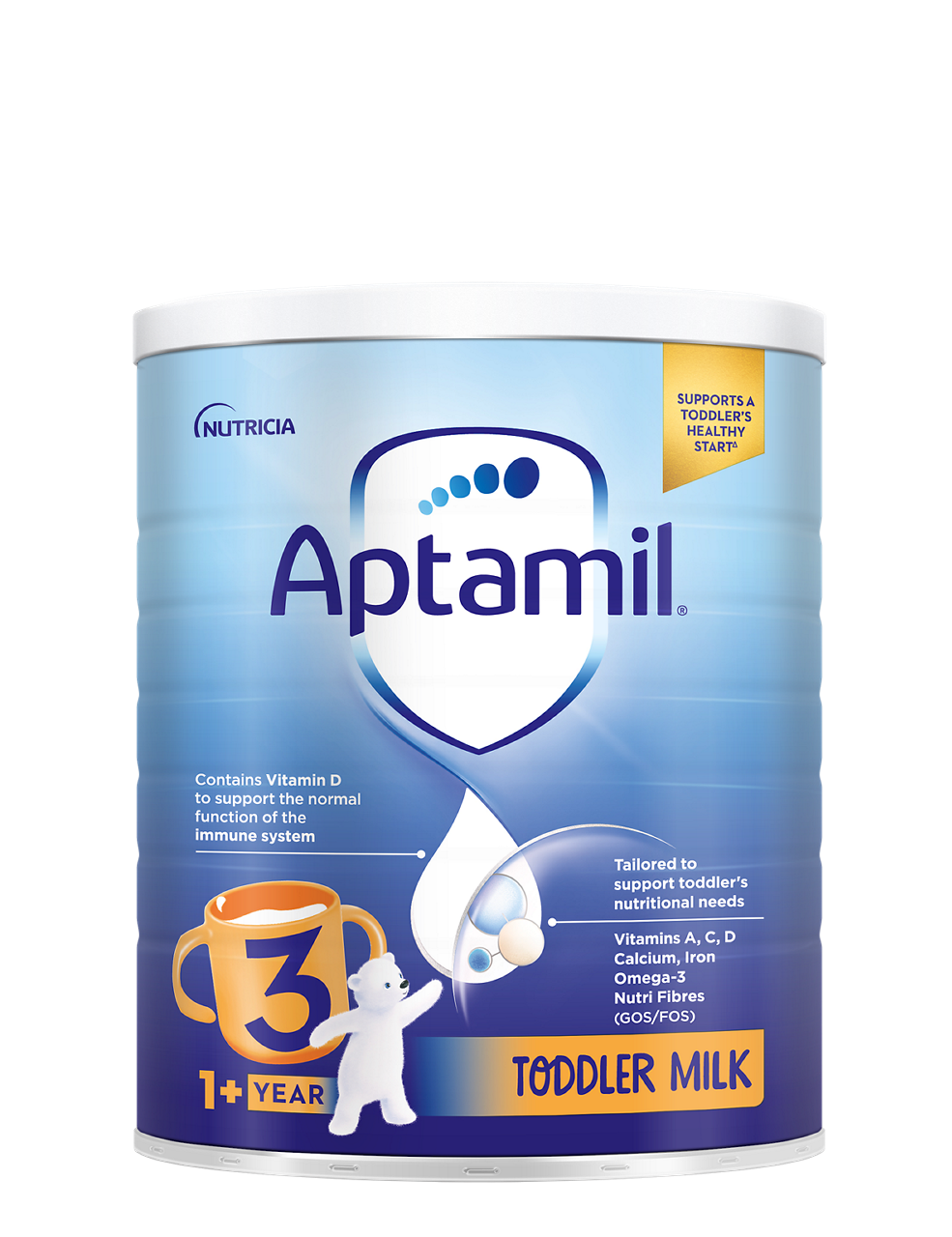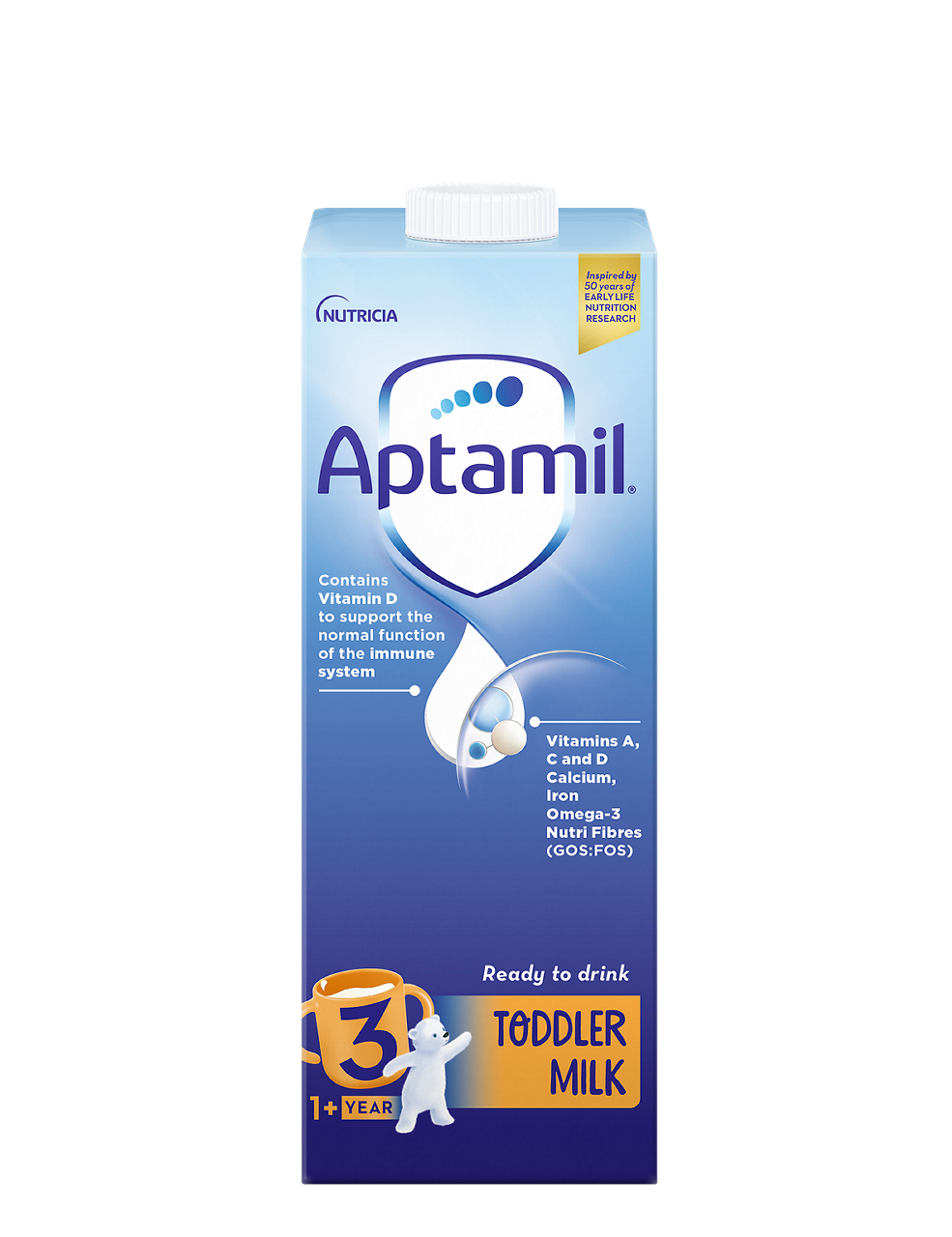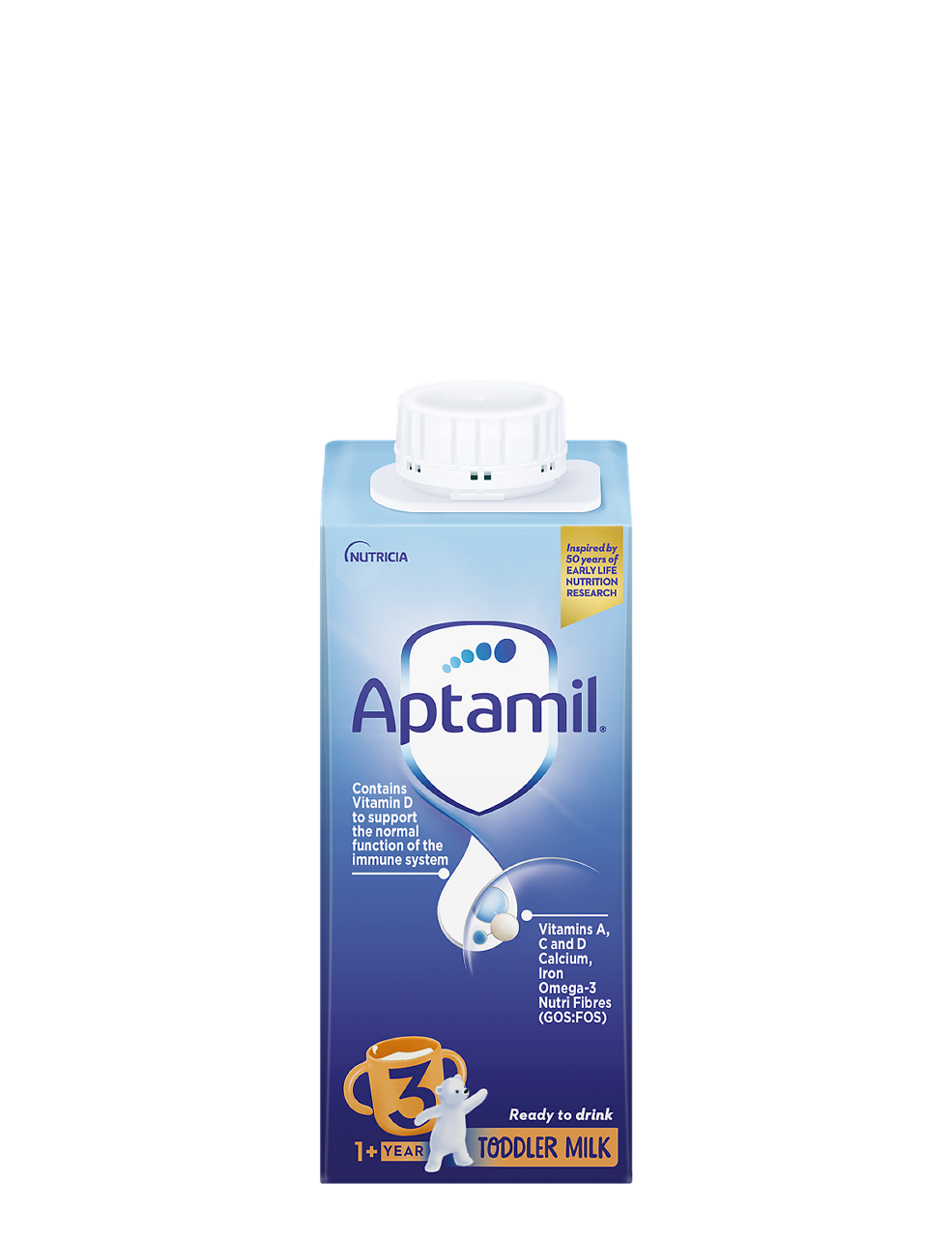



Aptamil® Toddler Milk 800g
Inspired by 50 years of research in early life science, our team of Nutricia scientists have developed our new and improved Aptamil® Toddler Milk powder. Our new formulation is enriched with nutrients to support a toddler’s healthy start, with Vitamin D to support the normal function of the immune system and calcium for normal growth and development. Just 2x 150ml beakers a day provides 100% of the recommended daily amount of Vitamin D for toddlers*.
Product information
Inspired by 50 years of research in early life science, our team of Nutricia scientists have developed our new and improved Aptamil® Toddler Milk powder. Our new formulation is enriched with nutrients to support a toddler’s healthy start, with Vitamin D to support the normal function of the immune system and calcium for normal growth and development. Just 2x 150ml beakers a day provides 100% of the recommended daily amount of Vitamin D for toddlers*.
Dairy-based blend (of which 24% is fermented) [Lactose (from milk), Skimmed milk, Vegetable oils (Sunflower oil, Fully refined soybean oil, Coconut oil, Rapeseed oil) in varying proportions, Whey products (Demineralised whey, Whey concentrate) (from milk), Calcium phosphate, Calcium carbonate, Fish oil, Potassium citrate, Sodium citrate, Potassium chloride, Vitamin C, Choline chloride, Emulsifier (Soy lecithin), Inositol, Magnesium chloride, Antioxidant (Vitamin C), Pantothenic acid, Vitamin E, Nicotinamide, Riboflavin, Vitamin B6, Thiamin, Potassium iodide, Folic acid, Vitamin K1, Biotin, Vitamin B12], Maltodextrin, Galacto-oligosaccharides (GOS) (from milk), Fructo-oligosaccharides (FOS), Magnesium hydrogen phosphate, Ferrous sulphate, Zinc sulphate, Milk flavouring, Vitamin A, Vitamin D3.
Allergy Advice: For allergens, see ingredients in bold.
- Nutrition information
- Typical values per 100ml prepared feed
- Energy
- 285kJ/68kcal
- Fat
- 2.9g
- of which, saturates
- 0.8g
- Carbohydrate
- 8.9g
- of which, sugars
- 6.7g
- Fibre
- 0.6g
- Protein
- 1.4g
- Salt
- 0.07g
- Vitamins
- Vitamin A
- 77.5µg/19%*
- Vitamin D3
- 3.4µg/49%*
- Vitamin E
- 1.5mg TE/30%*
- Vitamin K1
- 6.9µg/58%
- Vitamin C
- 15mg/33%*
- Riboflavin (B2)
- 0.24mg/34%*
- Vitamin B12
- 0.33µg/41%*
- Biotin
- 1.7µg/17%*
- Pantothenic acid
- 0.63mg/21%*
- Minerals
- Calcium
- 126mg/23%*
- Iron
- 1.4mg/18%*
- Iodine
- 16.4µg/21%*
- Typical values of other nutrients per 100ml prepared drink
- GOS/FOS**
- 0.8g
- Omega-3 LCP†
- 0.020g
%* Reference Intake - a guide to the amount of vitamins and minerals needed per day for infants and young children
**Galacto-oligosaccharides/Fructo-oligosaccharides
†Long-chain polyunsaturated fatty acids
How to prepare your toddler's drink.
Because powdered milks are not sterile, failure to follow preparation and storage instructions may make your toddler ill.
Important notice
We recommend giving your toddler about 2 x 150ml beakers of Aptamil® Stage 3 Toddler Milk a day, as part of a varied, balanced diet from 1 year onwards.
Age indication:
Suitable from 1-2 years
Legal name:
Fortified milk drink for young children, with a 25% fermented dairy-based blend
Name and address:
Nutricia Ltd,
White Horse Business Park,
Trowbridge,
Wiltshire,
BA14 0XQ
Net weight:
800g ℮
Store powder in a cool, dry place. Do not refrigerate.Use powder within 4 weeks of opening.
Aptamil® Stage 3 Toddler Milk Powder 800g EaZypacks are halal certified.
What other Aptamil products are halal approved?
Other products in this range

Need some help?
You can get quick answers to common questions in our FAQs.
Alternatively, if you need help with general pregnancy or baby advice, or maybe on using or ordering our products - our expert team are always on hand to talk about feeding your baby.
*Reference Nutrient Intake/Recommended Daily Allowance as recommended for toddlers by the Department of Health
Important notice
Breastfeeding is best for babies. Infant formula is suitable from birth when babies are not breastfed. Follow-on milk is only for babies over 6 months, as part of a mixed diet and should not be used as a breastmilk substitute before 6 months. We advise that all formula milks including the decision to start weaning should be made on the advice of a doctor, midwife, health visitor, public health nurse, dietitian, pharmacist or other professional responsible for maternal and child care, based on baby’s individual needs.
Do not use if your baby has been diagnosed with a cow's milk allergy.
Use Toddler Milk as part of a varied balanced diet from 1 year.
*From a regulatory point of view, we’re unable to offer discounts on infant formula, comfort and anti-reflux products.

